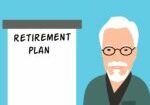Invest in Your Future This April by Becoming Financially Literate
April is National Financial Literacy Month – an entire month dedicated to underscoring the importance of learning, establishing, and maintaining healthy financial habits.
But ask yourself this: what have you learned about anything financial lately? Do most of your neighbors keep a household budget or save for retirement? Do you understand compound interest? Or know what the Dow Jones Industrial Average is? Is gold worth its own weight?
It may come as a surprise that the money habits of the average American reveal the following:
- Only about 40% of adults use a budget and track their spending.
- More than three out of four adult’s live paycheck to paycheck.
- About half of us maintain three months’ expenses in an emergency fund.
- More than a quarter of us have no savings at all.
Our collective debt best illustrates why we need to increase financial literacy in America. More than a third of U.S. adults worry they won’t save enough by retirement, student-loan debt has increased to over $1.5 trillion nationwide in 2022 and almost half of the American adults say they lack sufficient funds for emergencies.
Income and Age-Driven Opinions
Saving and investing may go hand in hand. As markets become more volatile, 401(k)s and other nest egg savings may rise and fall in value.
According to a 2016 Gallup poll, Americans’ opinions on long-term investments vary sharply – and reflect misconceptions – depending on income and age:
- Americans in households with less than $30,000 in annual income are likely to name gold as a good long-term investment choice. Upper-income Americans are least likely to name gold.
- Upper-income Americans are much more likely to name real estate and stocks as the best investments.
- Upper-income Americans are also most likely to own a home (87%). Homeowners are slightly more likely than renters to favor real estate as an investment.
- Stock investors are more likely to favor stocks: More than a third of such investors (34%) say stocks are the best long-term option compared with 13% of Americans who don’t own stocks.
- Upper-income Americans are more likely to own stocks (82%).
- More Americans rank real estate as the best long-term option today, more than in the past and ahead of gold and stocks.
- Americans 18 to 29 years old are almost evenly split between favoring real estate, stocks, gold, and savings accounts for long-term investments.
At Least We’re Honest About It
Americans seem frank about their financial shortcomings. Two out of five adults give themselves average or failing grades on personal finance. Plus, only 33% of parents talk to their kids about money.
By understanding how to better manage money and make the most of limited resources, many Americans can improve their personal financial situation. The Internet offers a wealth of information on finance – but when you don’t understand why you need to use it, you’re unlikely to pursue this information on your own.
Do so anyway and lift yourself out of these grim statistics. Talk to one of our financial planners today to get started!






